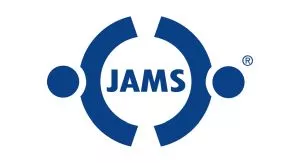U.S. Magistrate Judges have been utilized more frequently in recent years for alternative dispute resolution in the federal court system. This article discusses the history of the referral process, how and why cases are assigned to U.S. Magistrate Judges in the Houston and Galveston Divisions of the Southern District of Texas for settlement conferences, and what to expect if you are ordered to participate in a settlement conference.
In 1990, prompted by significant delays and costs associated with civil discovery, Congress enacted the Civil Justice Reform Act, which makes recommendations to address those problems by implementing case management principles and encouraging early judicial involvement in the discovery process.1 Among the recommendations was the use of court referrals of appropriate cases to mediation.2 In the years following, federal judges increasingly imposed mediation deadlines in their scheduling orders or, if the scheduling orders were silent on alternative dispute resolution, entertained motions compelling the parties to mediate. It was only a matter of time before U.S. Magistrate Judges were viewed as case management resources, especially in cases the U.S. District Judge believed should be mediated but where a party, typically a pro se litigant, could not afford to hire a mediator. Referrals to magistrate judges have expanded beyond cases with indigent parties and now encompass the full range of federal cases. However, limitations apply.
U.S. Magistrate Judges, as case management resources, are not free mediators for the asking. An attorney cannot simply call a magistrate judge's case manager to schedule a settlement conference because by statute, a U.S. District Judge must refer the case to the magistrate judge for a settlement conference.3 Magistrate judges in the Houston and Galveston Divisions are paired with two or three district judges who delegate matters to the assigned magistrate judge. Each district judge has his or her own philosophy about the use of the assigned magistrate judge in the pretrial management of a case. Some judges refer entire cases to the magistrate judge for full pretrial management, including dispositive motions; other judges only refer discovery matters or individual motions.4 This difference in philosophies extends to referrals of cases to magistrate judges for settlement conferences.
For example, some district judges are reluctant to use court resources-the magistrate judge's time-to provide free mediations to represented parties. Those judges rarely, if ever, refer a case to a magistrate judge for a settlement conference, even if requested by the parties. Other district judges may use information learned at the Rule 16 pretrial scheduling and management conference to identify whether the case should be referred for a settlement conference. In cases involving limited damage claims, an early settlement conference before a magistrate judge provides the parties an opportunity to resolve the case in a cost-efficient manner. The district judge may order that the parties exchange written discovery but limit the number of depositions that the parties may take prior to the settlement conference. This strategy is particularly effective in fee-shifting cases such as employment or consumer cases, where the attorneys' fees can quickly outstrip the actual damages and prevent a settlement at a later date.
Sometimes a case may be referred for a settlement conference after the close of discovery, either before dispositive motions have been decided or after. In the former scenario, the district judge may hope that the case can be resolved without the necessity of his or her ruling on a complicated or time-consuming motion for summary judgment that may not fully dispose of the case. The district judge might refer the case for a settlement conference after all dispositive motions are resolved if the district judge believes that one or both of the parties need a reality check on the likelihood of a plaintiff's success, on a defendant's avoidance of liability, or on the amount of damages that may be awarded by the court or the jury. If a magistrate judge can resolve a case in less than eight hours, the district judge may consider that to be an efficient use of a judicial officer's time if the memorandum opinion on the pending motion was anticipated to take a week or more to complete or if a trial could be avoided.
Of course, there are only time savings if the case settles. Because magistrate judges preside over their own consent cases in addition to handling cases, motions, and disputes referred by the district judge, they will expect the parties to be respectful of their time and negotiate quickly. Litigants should not expect a magistrate judge to allocate an entire day to a settlement conference. A magistrate judge is not likely to be tolerant of a plaintiff whose opening demand is grossly unrealistic or of a defendant who wants to increase counteroffers by $500 a round. A private mediator expects to take several hours listening to the parties in order to understand the dispute and to establish trust that facilitates a negotiated compromise. Importantly, the private mediator is compensated for this time. A magistrate judge, on the other hand, due to pressing judicial duties, does not have the luxury of spending hours establishing trust with the parties or conducting pre-conference telephone calls to get a feel for the backstory of the dispute. The bottom line here is that a settlement conference with a magistrate judge is more like the afternoon of a typical mediation; everyone needs to get to the point and do it quickly. If the parties are not making sufficient progress toward a resolution, the judge will end the conference.
Another difference between a private mediation and a settlement conference before a magistrate judge is that settlement conferences tend to be more evaluative than private mediations. The parties should be prepared to discuss what evidence and law supports their respective positions and how damages will be calculated or defeated. It is important to underline that the magistrate judge is imparting his or her evaluation of the case and no more. Despite what some lawyers may believe, U.S. Magistrate Judges do not discuss with U.S. District Judges the cases referred for settlement conferences, and a magistrate judge therefore has no knowledge about how the district judge may rule on any particular motion. However, magistrate judges can call on their own knowledge of the case law and jury verdicts to give the parties points to consider when evaluating their respective positions vis-à-vis settlement. If a case does not settle, the magistrate judge communicates only that fact to the district judge's case manager. If the case settles, the district judge's case manager will be told when the parties will submit their closing documents or how many days the court should incorporate into its conditional order of dismissal.
At the settlement conference, the magistrate judge will assist in obtaining an agreement on material terms but will not draft a settlement agreement or provide proposed settlement documents to the parties. Remember, confidentiality applies to all settlement conferences before a U.S. Magistrate Judge, so the settlement conference may not be used as a conduit to the district judge concerning complaints by one party that the other party has been uncooperative or has otherwise misbehaved in discovery. The district judge will not be informed of offers and demands made in the settlement conference or why the case did not settle.
Preparation for a settlement conference should include a pre-conference discussion with the client about the strengths and weaknesses of the case. The settlement conference is not a good time for your client to learn that his or her expectation of a large damage award is unlikely, that a certain witness's testimony was unfavorable, or that you have not designated a damages expert or taken a key deposition and all deadlines have expired. You may be asked to explain the factual basis for your damages calculation. If you are seeking attorney's fees, be prepared to produce your billing records. Having to admit at the conference that you have not kept time records certainly will not help your bargaining position in obtaining your fees as part of the settlement.
Parties referred for a settlement conference should remember that it is a court proceeding. The parties can explain their respective cases to a judge, which sometimes can serve as a needed catharsis that helps pave the way for a settlement. However, the court expects all parties and counsel to conduct themselves professionally and with courtesy to the opposing party and to the court. A continued failure to behave appropriately could end the mediation and impair that attorney's ability to receive future referrals for settlement conferences. If a party or an attorney fails to appear for a scheduled settlement conference, the magistrate judge may assess costs against the non-appearing party or counsel.
In sum, a referral to a magistrate judge for a settlement conference is a valuable court resource not to be taken lightly. Remember that although a settlement conference before a magistrate judge offers the same cloak of confidentiality as private mediation, you and your client are appearing before a judicial officer pursuant to a court order. Be courteous and respectful of the court's time. Be prepared to discuss the merits of your case and move quickly in your negotiations. Magistrate judges have successfully resolved both big and small cases through settlement conferences, but success depends on the parties' preparation and willingness to compromise. Make sure both you and your client are ready to discuss settlement terms and to take advantage of the evaluative nature of a settlement conference before a U.S. Magistrate Judge.
The Hon. Nancy K. Johnson (Ret.), who served as a United States Magistrate Judge in the Southern District of Texas for 30 years, is presently a full-time mediator and arbitrator with JAMS in Houston.
This article originally appeared in the Jan./Feb. 2021 edition of The Houston Lawyer and is reprinted here by permission.
Footnotes
1 Janet Civil Justice Reform Act of 1990, 28 U.S.C. §§ 471-82.
2 Id. § 473.
3 Federal Magistrates Acts, 28 U.S.C. § 636.
4 If a case has been assigned to a magistrate judge for full pretrial management, that magistrate judge cannot conduct a settlement conference or refer the case to another.
The content of this article is intended to provide a general guide to the subject matter. Specialist advice should be sought about your specific circumstances.

